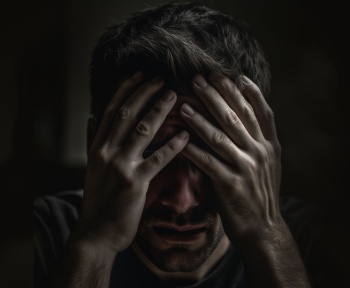1. Bipolar disorder and dual diagnosis: what you need to know
What is bipolar disorder?
Bipolar disorder, also known as manic depression, is a mental illness that causes extreme mood swings that include periods of mania or elation, and periods of depression. People with bipolar disorder often have difficulty functioning in their day-to-day lives, and may be at risk for suicide.
What is dual diagnosis?
Dual diagnosis is when someone has both a mental illness and a substance abuse problem. This can be a difficult combination to treat, because the two illnesses can interact and worsen each other.
What are the symptoms of bipolar disorder?
The symptoms of bipolar disorder can vary, but typically include periods of mania or elation, followed by periods of depression. Mania symptoms can include:
– feeling excessively happy or “high”
– having a lot of energy
– being very irritable
– talking very fast
– not being able to concentrate
– sleeping less
– engaging in risky or impulsive behaviors
Depression symptoms can include:
– feeling sad or “down”
– having no energy
– feeling hopeless or helpless
– not being able to concentrate
– sleeping too much
– not wanting to eat
If you or someone you know is experiencing these symptoms, it’s important to seek professional help. Bipolar disorder is a serious mental illness that can be difficult to manage on your own.
What causes bipolar disorder?
The exact cause of bipolar disorder is unknown, but it is thought to be caused by a combination of genetic and environmental factors. People with a family history of bipolar disorder or other mental illnesses are more likely to develop the condition.
What are the treatments for bipolar disorder?
Bipolar disorder is a treatable condition. There are a variety of treatment options available, including medication, psychotherapy, and lifestyle changes. The best treatment plan will be tailored to the individual’s needs. If you or someone you know is struggling with bipolar disorder, there is help available. There are many resources available to help you understand and manage the condition. You are not alone
2. The challenges of treating bipolar disorder and dual diagnosis
Bipolar disorder is a mental illness that causes extreme mood swings. The highs, or mania, can be so severe that they interfere with a person’s ability to function. The lows, or depression, can be just as debilitating.
People with bipolar disorder often also have other mental health disorders, such as anxiety or substance abuse disorders. This is known as a dual diagnosis.
Treating bipolar disorder can be difficult. There is no one-size-fits-all approach. Medications can help stabilize mood swings, but they can also have side effects. Therapy can be helpful, but it can be hard to find a therapist who specializes in bipolar disorder.
People with bipolar disorder and dual diagnosis face many challenges. They may feel like they are never really well. They may miss work or school. They may have trouble maintaining relationships.
But there is hope. With treatment, people with bipolar disorder can live normal, productive lives.
3. The importance of an individualized treatment plan
When it comes to bipolar disorder, there is no one-size-fits-all treatment. What works for one person may not work for another. That’s why it’s so important to have an individualized treatment plan.
Your treatment plan will be based on a number of factors, including:
• The severity of your symptoms
• The type of bipolar disorder you have
• Your medical history
• Your preferences
Your treatment plan may include medication, talk therapy, or a combination of both. It’s important to work with your mental health professional to find a treatment that works for you.
Bipolar disorder can be a difficult illness to live with. But with the right treatment, you can manage your symptoms and live a healthy, productive life.
4. The role of medication in treating bipolar disorder and dual diagnosis
Bipolar disorder is a mental illness that causes extreme changes in mood, energy, and activity levels. People with bipolar disorder often have periods of mania, or high energy and activity levels, followed by periods of depression, or low energy and activity levels. These changes can be so severe that they interfere with a person’s ability to function.
Dual diagnosis is a term used to describe when a person has both a mental illness and a substance use disorder. Substance use disorders are when a person has a problem with using alcohol or drugs that leads to problems in their life. Dual diagnosis is also sometimes called co-occurring disorders.
Medications are often used to treat bipolar disorder and dual diagnosis. They can be used to stabilize moods, relieve symptoms, and prevent relapse. Medications can be taken alone or in combination with other treatments, such as therapy.
There are different types of medications that can be used to treat bipolar disorder. These include mood stabilizers, antipsychotics, and antidepressants. Mood stabilizers are the most commonly used type of medication for bipolar disorder. They can help to even out mood swings and prevent manic and depressive episodes. Antipsychotics can be used to treat the manic or psychotic symptoms of bipolar disorder. Antidepressants can be used to treat the depressive symptoms of bipolar disorder.
It is important to work with a mental health professional to find the right medication or combination of medications for you. Medications can have side effects, so it is important to monitor them closely.
5. The importance of talk therapy in treating bipolar disorder and dual diagnosis
Talk therapy is a vital part of treating bipolar disorder and dual diagnosis. It can help you understand your illness, develop coping skills, and set goals for your recovery.
Talk therapy can also help you manage your symptoms and reduce your risk of relapse. If you have bipolar disorder and dual diagnosis, you may benefit from both individual and group therapy.
Individual therapy can help you:
* Understand your diagnosis
* Learn about your illness
* Develop coping skills
* Manage your symptoms
* Reduce your risk of relapse
Group therapy can help you:
* Connect with others who have similar experiences
* Share your experiences and feelings
* Learn from others
* Develop coping skills
* Support each other
Talk therapy can be an important part of your treatment plan for bipolar disorder and dual diagnosis. It can help you understand your illness, develop coping skills, and set goals for your recovery.
6. The challenges of living with bipolar disorder and dual diagnosis
When you are living with bipolar disorder, you may find that you face a number of challenges. Not only are you dealing with the symptoms of your illness, but you may also find that you are dealing with other mental health issues as well. This is known as dual diagnosis, and it can make living with bipolar disorder even more difficult.
One of the challenges of dual diagnosis is that it can be difficult to get the right treatment. Because you have two different conditions, it is important to find a treatment team that is experienced in treating both bipolar disorder and your other condition. This can be a challenge, as not all mental health professionals are familiar with dual diagnosis.
Another challenge of dual diagnosis is that your symptoms may interact with each other. For example, if you are depressed, you may find that your symptoms of bipolar disorder are worse. Or, if you are experiencing mania, you may find that your other symptoms become more severe. This can make it difficult to manage your symptoms and can lead to a deterioration in your mental health.
Finally, living with dual diagnosis can be very isolating. Because your conditions are not well understood, you may find that you are not able to relate to others who do not have bipolar disorder or your other condition. This can make it difficult to find support, and you may feel like you are all alone in your struggle.
If you are living with bipolar disorder and dual diagnosis, it is important to seek out help from a mental health professional. With the right treatment, you can manage your symptoms and live a fulfilling life.





